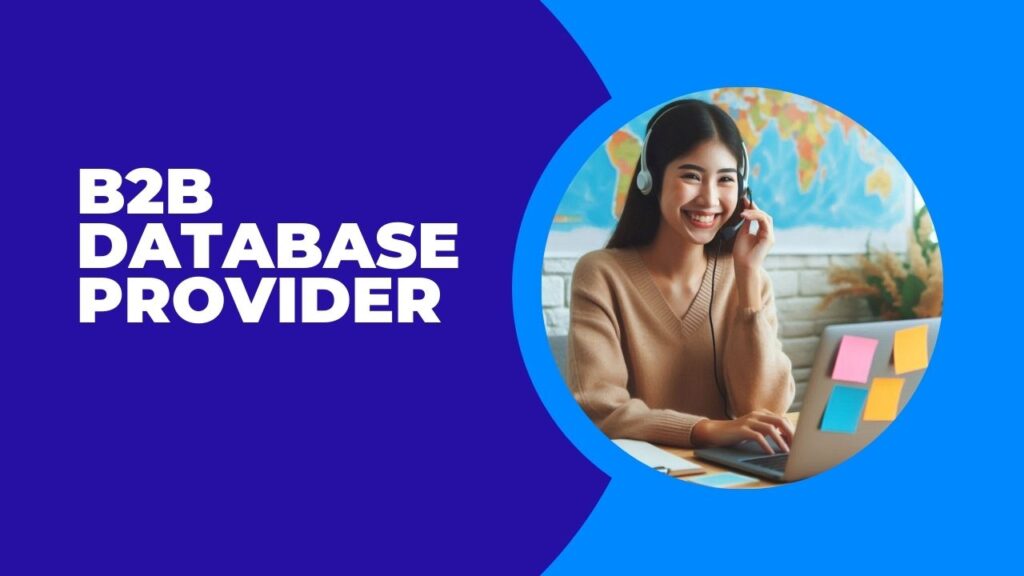This has got even more true as we find ourselves in a world where everything happens at the speed of light in the B2B marketing world. It is a fact that identifying new potential customers, especially those who have a high chance of doing business with a specific company, is not always easy. Others may not agree and prefer traditional strategies, which often take too long and are not effective. Now important to realize that it is time to change the approach toward one that is more contemporary and efficient in achieving the objectives. Thank you, thank you, thank you – let’s usher in a new age of streamlined B2B lead generation.
Table of Contents
Understanding the Importance of Efficient B2B Lead Generation
Business leads are crucial to the development of any business that operates with other businesses within the business-to-business market. A potential client or a partner – they are people who may bring a lot of revenues to the company and make a great contribution in its development. However, not all these identified leads are the same and may vary as a result of some influencing factors. Using lead generation with well-qualified and well-maintained leads directly has easier conversion rates, happy customers, and high revenue generation. With regard to generating high-quality leads, B2B lead generation is useful when it comes to finding and nurturing these leads to produce a constant stream of opportunities for your business.
However, with the current approach in many organizations, this elaborate process of lead generation often proves to be ineffective. It’s important to acknowledge these problems and look for less detrimental ways a data vendor and ANSP can achieve their objectives.

Yet, many businesses struggle with lead generation due to outdated methods that are time-consuming and yield low returns. It’s crucial to recognize these challenges and seek more efficient solutions.
Traditional Lead Generation Methods: Pros and Cons
Cold calling, email marketing, newsletter mailing, direct selling, and participation in trade fairs and exhibitions are some of the most conventional approaches that are still widely used in B2B marketing today. Of course, there exist some advantages when it comes to these methods; however, they are not without prevalent demerits. However, in today’s advanced setting where many organizations have developed initial b2b networks, the traditional process of distribution through channels has become more important, and with this emerges the importance of a b2b Data Vendor which plays the part in providing specific data that can improve the techniques on the distribution through channels method.
Pros
• Personal Connection: One-to-one transactions may help foster better interpersonal cooperation.
• Immediate Feedback: Immediate responses also mean that one can quickly tell whether the targeted audience showed any interest or not and refine their selling pitches as necessary.
• Broad Reach: Businesses can find an audience through community events, trade shows or networking conferences.
Cons
• Inefficiency: Cold calling or sending mass emails can be unproductive and many of the recipients may totally ignore the call or the email.
• High Costs: It may cost you a fortune to pay individuals in order to attend events or hiring staff for manual marketing.
• Time-Consuming: Evidently, traditional methods consume much time, but cannot guarantee success in achieving the planned goals.• Time-Consuming: Evidently, traditional methods consume much time, but cannot guarantee success in achieving the planned goals.
The Shift to Modern B2B Lead Generation Techniques
When it comes to the generation of leads, it is very important to understand that technology is a fluid channel whose methods are also in a continuous state of fluidity. The application of advanced strategies and tactics in B2B lead generation: Today, data, self-service tools, and algorithms, sometimes purchased from third parties, help to find and communicate with desirable customers. The good news is that these methods not only help you save time but also provide accurate targeting of the audience.
Advantages Over Traditional Methods
- Data-Driven Decisions: Utilize analytics to target the right audience.
- Automation: Streamline repetitive tasks to focus on high-value activities.
- Personalization: Tailor your approach to individual leads based on their behavior and preferences.
Key Modern B2B Lead Generation Strategies
Data-Driven Marketing
Data driven marketing therefore entails a process whereby you gather as much information about your target customers as possible and create your marketing campaigns based on such information. The analysis of customers’ information enables one to make distinctions with future perception with regard to patronage hence its applicability in the marketing strategies. To get such data, it is imperative to select the best data provider in a bid to obtain the most appropriate information to be used in these assessments.
Tools and Software Recommendations:
- Google Analytics: Track website traffic and user behavior.
- HubSpot: Manage customer relationships and analyze lead data.
- Marketo: Automate marketing processes and measure performance.
Artificial Intelligence and Machine Learning
AI, and by extension, ML can enhance the predictiveness of lead behavior and enhance the impact of personalized outreach. An example of how AI can assist the salespeople to a greater extent is that the large number of potential leads recorded in a large organization’s database can be sifted through and the best way to communicate and interact with the identified leads can also be suggested by the AI system.
Case Studies or Success Stories:
- Salesforce Einstein: AI-powered insights that help sales teams prioritize leads.
- Drift: AI chatbots that engage website visitors in real-time, qualifying leads on the spot.
Marketing Automation
Some of the processes that are simplified through marketing automation include; emailing, social media management, ads, digital marketing, and all marketing activities in the digital front. This makes it possible for you to dedicate time to developing strategies and creativity in your campaign this is while making sure that all the outreach you are doing is in order and credible.
Examples of Effective Marketing Automation Tools:
- Mailchimp: Automate email campaigns and track engagement.
- Pardot: A B2B marketing automation solution by Salesforce.
- ActiveCampaign: Combine email marketing, automation, and CRM.
Content Marketing and SEO
Developing useful content that assists in solving your target’s problem is a vital factor in drawing and turning them into leads. Together with the search engine optimization technique, content marketing guarantees your material gets to the right audience at the appropriate time.
Strategies for Optimizing Content for Search Engines:
- Keyword Research: Identify relevant keywords your audience is searching for.
- Quality Content: Produce in-depth, useful content that answers questions and solves problems.
- On-Page SEO: Optimize meta descriptions, headers, and images for better search engine ranking.
How to Implement Modern Lead Generation Techniques
Step-by-Step Guide
Step 1: Assess Your Current Lead Generation Process
- Evaluate the effectiveness of your current methods.
- Identify areas for improvement.
Step 2: Choose the Right Tools and Platforms
- Research and select tools that fit your business needs and budget.
- Integrate these tools into your existing systems.
Step 3: Integrate Data Analytics and Automation
- Set up data tracking and analytics.
- Implement automation for repetitive tasks.
Step 4: Develop a Content Strategy Aligned with SEO Best Practices
- Plan and create content that addresses your target audience’s pain points.
- Optimize content for search engines to increase visibility.
Step 5: Continuously Monitor and Optimize Your Strategies
- Track key metrics to measure success.
- Adjust your strategies based on performance data.
Measuring the Success of Your Lead Generation Efforts
Key Metrics to Track
- Conversion Rates: The percentage of leads that convert into customers.
- Cost Per Lead: The total cost of generating a single lead.
- Customer Acquisition Cost: The total cost of acquiring a new customer.
- Lead Quality: The likelihood of a lead converting into a customer.
Tools for Measurement
- Google Analytics: Track website performance and user behavior.
- CRM Systems: Manage and analyze customer interactions and data.
- Marketing Automation Software: Measure the effectiveness of your campaigns.
Case Studies
Provide examples of companies that have successfully improved their lead-generation efforts through modern techniques.
Overcoming Common Obstacles in Modern Lead Generation
Common Challenges
- Data Privacy Concerns: Ensuring compliance with data protection regulations.
- Integration Issues: Seamlessly integrating new tools with existing systems.
- Maintaining Quality: Ensuring that automated processes do not compromise lead quality.
Solutions and Best Practices
- Data Privacy: Implement robust data protection policies and practices.
- Integration: Choose tools that offer easy integration and provide support.
- Quality Control: Regularly review and adjust automated processes to maintain lead quality.
The Future of B2B Lead Generation
Emerging Trends
- AI and ML Advancements: Continued improvements in predictive analytics and personalization.
- Voice Search Optimization: Adapting content for voice search queries.
- Omnichannel Marketing: Providing a seamless experience across multiple channels.
Preparing for the Future
- Stay Informed: Keep up with the latest trends and technologies.
- Be Flexible: Be ready to adapt your strategies as new opportunities and challenges arise.
Conclusion
All in all, today’s practices of B2B lead generation are more effective and less costly as compared to the earlier conventional practices to attract and convert hot leads. Through the use of data in marketing, automating systems, and use of artificial intelligence, as well as using content marketing businesses can benefit in the aspect of time and cost hence creating better marketing. Now it is possible and the only thing to do is to minimize the time wasted and locate your ideal B2B leads.



